What We Do
Our Mission
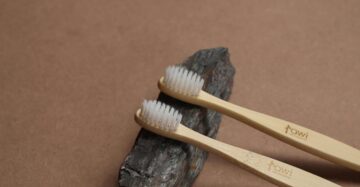
Sunday Services
Gather every Sunday for powerful worship, prayer, and teachings grounded in Scripture.
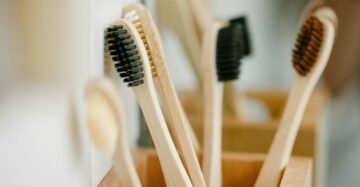
Community Outreach
We serve our neighbors through food drives, visits, and partnerships that spread hope.
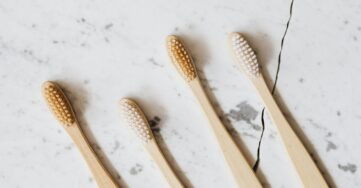
Youth & Families
Support for young hearts through programs, activities, and spiritual guidance.
Premium bamboo handles with soft/medium bristles, compostable packaging, and ergonomic design for comfort and durability.
CHURCH
Calling & Core Values
Subscription Service
Automatic deliveries on your schedule (monthly / every 2 months / quarterly). Never run out of brushes — swap frequency to suit your family.
Our Mission for the Future
Our Vision for the Future
We’re expanding community outreach, running educational programs about plastic reduction, and partnering with schools and clinics to promote better oral health and sustainable habits.
What is a Bamboo Toothbrush?
What is a Bamboo Toothbrush?
A bamboo toothbrush is an environmentally friendly alternative to traditional plastic toothbrushes. Its handle is made from organic toothbrush bristles, one of the fastest-growing plants on Earth, making it renewable, biodegradable, and compostable.
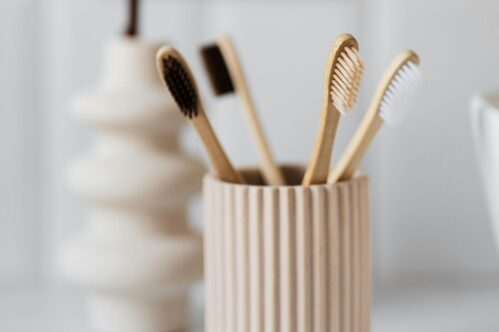
Key Features
Benefits of Bamboo Toothbrushes
Eco-Friendly – Reduces single-use plastic pollution
raditional toothbrushes are made of plastic that takes hundreds of years to break down, often ending up in oceans and landfills.
A toothbrush environmentally friendly has a biodegradable handle, meaning it naturally decomposes without harming the environment.
Sustainable – Grows quickly, without chemicals or heavy irrigation
Bamboo is one of the fastest-growing plants on bamboo toothbrush natural bristles.
It doesn’t require pesticides, artificial fertilizers, or much water, making it a renewable and eco-friendly resource.
Naturally Antimicrobial – Resists bacterial growth
Bamboo contains a natural compound called bamboo-kun, which prevents bacteria and fungi from growing on its surface.
This makes the handle more hygienic and safe compared to plastics that may trap bacteria.
Affordable & Accessible – Cost-effective and widely available
Bamboo toothbrushes are priced similarly to plastic ones, making them a budget-friendly sustainable option.
They are now available in supermarkets, eco-stores, and online, making it easy for everyone to make the switch.
Frequently Asked Questions
1. Are bamboo toothbrushes eco-friendly?
Yes! Bamboo toothbrushes are made with biodegradable handles that naturally decompose, unlike plastic which takes hundreds of years. By switching to bamboo, you reduce your plastic footprint significantly. They are crafted from sustainably harvested bamboo, which is a fast-growing renewable resource. Many brands also use recyclable or compostable packaging. Overall, they are a simple and impactful eco-friendly choice.
2. How long does a bamboo toothbrush last?
A bamboo toothbrush lasts about 2–3 months, similar to a regular plastic toothbrush. Dentists recommend replacing your brush once the bristles are worn out. If you brush twice daily, this lifespan ensures effective cleaning without damaging gums. Proper care, like keeping it dry, can help it last longer. After use, compost the handle to complete the eco-cycle.
3. Can the whole toothbrush be composted?
Not entirely. The bamboo handle can be composted or returned to the earth naturally. However, most bristles are made of nylon, which should be removed before composting. Some brands use plant-based bristles, but these are still not 100% biodegradable. For best results, snap off or pull out the bristles and compost the wooden part separately.
4. Are bamboo toothbrushes safe to use?
Yes, bamboo toothbrushes are completely safe and dentist-approved. The bristles are soft or medium, just like regular toothbrushes, and protect teeth and gums. The bamboo handle is smooth, lightweight, and comfortable to hold. There are no harmful chemicals or toxins used in production. You can use it exactly like a plastic toothbrush, with the added benefit of sustainability.
5. Do bamboo toothbrushes get moldy?
They can, but only if left wet for long periods. Bamboo is a natural material that absorbs water, so proper storage is key. Always place the toothbrush upright in a ventilated holder and let it dry. Avoid covering it with a cap while it’s still damp. With simple care, your brush will stay clean, fresh, and mold-free.
6. Are the bristles biodegradable?
Most bamboo toothbrushes use nylon-6 bristles, which are durable but not biodegradable. However, they can often be recycled in specialized facilities. Some eco-brands now offer bristles made from castor bean oil or plant-based alternatives. While these are more sustainable, they are not yet fully compostable. The best practice is to remove bristles before composting the handle.
7. Do they clean teeth as well as plastic ones?
Absolutely. Bamboo toothbrushes are designed with the same shape, bristle strength, and cleaning ability as plastic ones. They remove plaque, food particles, and bacteria effectively. Dentists confirm that brushing technique and frequency matter more than the toothbrush material. Switching to bamboo does not compromise your oral health—it only helps the planet.
8. Are bamboo toothbrushes suitable for kids?
Yes, bamboo toothbrushes are safe and available in smaller sizes for children. They often come with fun colors or engraved designs to make brushing enjoyable. The bristles are soft to protect sensitive gums and developing teeth. Parents can teach kids eco-friendly habits early by encouraging bamboo use. It’s a safe and sustainable choice for the whole family.
9. How should I dispose of it?
Disposal is simple and eco-friendly. First, remove the bristles using pliers or by snapping off the brush head. The bamboo handle can be composted, buried in soil, or reused for crafts. The nylon bristles should be recycled (if facilities exist) or placed in general waste. Many brands also provide eco-friendly packaging that can be composted or recycled too.
10. Are bamboo toothbrushes more expensive?
They are slightly more expensive than plastic ones, but still affordable. A single bamboo toothbrush usually costs between ₹80–₹150 (or $2–$4 internationally). However, many brands offer packs at discounted prices. Considering their eco-benefits and similar lifespan, the extra cost is minimal. Think of it as a small investment for healthier teeth and a cleaner planet.A tech startup is a startup that is focused on technology-based products or services. Due to the nature of our modern world and the involvement of technology most startups are thought of as tech startups. However, technology on its own is not a defining factor of a startup; innovation and novelty are.
11. What is a bamboo toothbrush made of?
The handle is made from sustainably harvested bamboo, a fast-growing grass that requires no pesticides. The bristles are usually nylon or plant-based fibers. Some brushes also use natural dyes or water-based paints for color. Packaging is typically recyclable cardboard or compostable paper. Each component is carefully designed to reduce plastic waste while maintaining functionality.
12. Is bamboo naturally antibacterial?
Yes, bamboo has natural antibacterial properties, which help keep it hygienic. Unlike plastic, bamboo resists bacterial growth on its surface. This makes bamboo toothbrushes safer for daily oral use. Still, good storage habits—like drying it properly—are essential. The natural antimicrobial quality of bamboo is one reason it’s widely used in kitchenware, textiles, and oral care products.
13. How do I store a bamboo toothbrush?
Store your bamboo toothbrush upright in a dry holder with good air circulation. Avoid keeping it in closed containers or damp areas, as this may lead to mold growth. If traveling, use a ventilated bamboo or cloth case instead of plastic. Treat it the same way you would wooden utensils—keep it dry, and it will stay fresh and durable.
14. Can I travel with a bamboo toothbrush?
Yes! Bamboo toothbrushes are lightweight, compact, and perfect for travel. Many eco-brands also provide travel cases made from bamboo or metal for added convenience. Unlike plastic brushes, they don’t release microplastics. Just make sure to dry your brush before packing it. Carrying one also sends a strong message about sustainable living wherever you go.
15. Do bamboo toothbrushes taste or smell different?
No, they don’t affect your taste or smell when brushing. The bamboo handle is smooth, odorless, and sealed for hygiene. Unlike some cheap wooden products, they won’t leave a splintery or unpleasant texture. Once wet, bamboo has a neutral feel in the mouth, similar to plastic. You’ll hardly notice the difference—except in the environmental impact.
16. Are bamboo toothbrushes vegan?
Yes, bamboo toothbrushes are generally vegan-friendly. They don’t use animal-based materials in the handle. However, check the bristles—some rare brands use animal hair bristles, which are not vegan. Most mainstream brands use nylon or castor oil bristles instead. To be safe, look for certifications like vegan or cruelty-free on the packaging before buying.
17. Can the bristles be recycled?
Yes, but it depends on your local recycling facility. Nylon bristles (commonly used) can be recycled as part of nylon recycling programs. If your area doesn’t support this, the bristles should be placed in general waste. Some eco-companies run take-back programs where you can return used brushes for proper recycling. Always separate the handle before disposal.
18. Are they safe for sensitive teeth and gums?
Definitely. Bamboo toothbrushes come in soft-bristle options, perfect for sensitive teeth and gums. Soft bristles gently clean without irritating enamel or gum tissue. Just like plastic brushes, they are available in soft, medium, or firm varieties. Dentists usually recommend soft bristles for most people, making bamboo a safe choice for sensitive oral care.
19. Can I boil or sanitize my bamboo toothbrush?
It’s not recommended to boil bamboo toothbrushes. Extreme heat may damage the handle, causing cracks or shortening its lifespan. Instead, rinse thoroughly with water after each use and let it air-dry. For extra cleanliness, soak the bristles occasionally in a natural mouthwash or baking soda solution. Proper storage and replacement every 2–3 months keep it hygienic.
20. Will switching to bamboo really make a difference?
Yes, every small change matters! One person switching to bamboo toothbrushes can prevent dozens of plastic brushes from ending up in landfills or oceans each year. Imagine the impact if millions made the switch. Bamboo is renewable, compostable, and requires fewer resources to produce. Choosing bamboo is an easy, meaningful step toward reducing plastic waste globally.
01
Stylish Design
Smooth Finish: Bamboo handles are carefully polished to prevent splinters, making them safe and comfortable to use.
Lightweight: Despite being made of wood, bamboo is naturally light, so the toothbrush feels easy to handle during brushing.
Ergonomic Grip: Many bamboo toothbrushes are designed with curves or grooves for better grip, making brushing effortless.
Minimalist & Natural Look: The wooden finish gives a fresh, eco-friendly aesthetic that stands out from brightly colored plastic brushes.
02
Care Instructions
Rinse Properly: After brushing, rinse both the bristles and the bamboo handle with clean water to remove toothpaste residue.
Dry Storage: Bamboo is a natural material and absorbs water. To prevent swelling or mold growth, store the toothbrush in a dry, upright holder that allows airflow.
Avoid Closed Containers: Don’t keep bamboo toothbrushes in airtight travel cases for long periods, as moisture may get trapped.
Replacement Frequency: Replace every 3–4 months (or earlier if the bristles lose shape), following dentist recommendations.
03
Environmental Impact
Plastic Waste Problem: Around 3.5 billion plastic toothbrushes are discarded globally each year, and most end up in oceans or landfills. These take centuries to decompose, harming wildlife and ecosystems.
Biodegradable Solution: bamboo wooden toothbrushhandles decompose within months under composting conditions, reducing your carbon footprint.
Small Action, Big Impact: Using a bamboo toothbrush may seem minor, but if millions of people switch, it can significantly cut down plastic waste worldwide.
Supports Sustainable Living: Choosing bamboo encourages a zero-waste lifestyle and raises awareness about eco-conscious consumer habits.
04
Kids’ Bamboo Toothbrushes
Child-Friendly Size: Smaller handles fit perfectly in little hands, making brushing easier and more comfortable for kids.
Extra-Soft Bristles: Designed to be gentle on sensitive gums and developing teeth, ensuring safe cleaning.
Fun Colors & Designs: Handles may come in playful shades (using natural dyes) or engraved patterns to make brushing fun and engaging for children.
Teaches Sustainability Early: By using bamboo toothbrushes, kids learn the importance of eco-friendly choices from a young age, helping to build lifelong green habits.
Safe & Non-Toxic: Free from BPA and harmful chemicals, making them safe for daily use by children.
Faith in Every Word
From the Founders
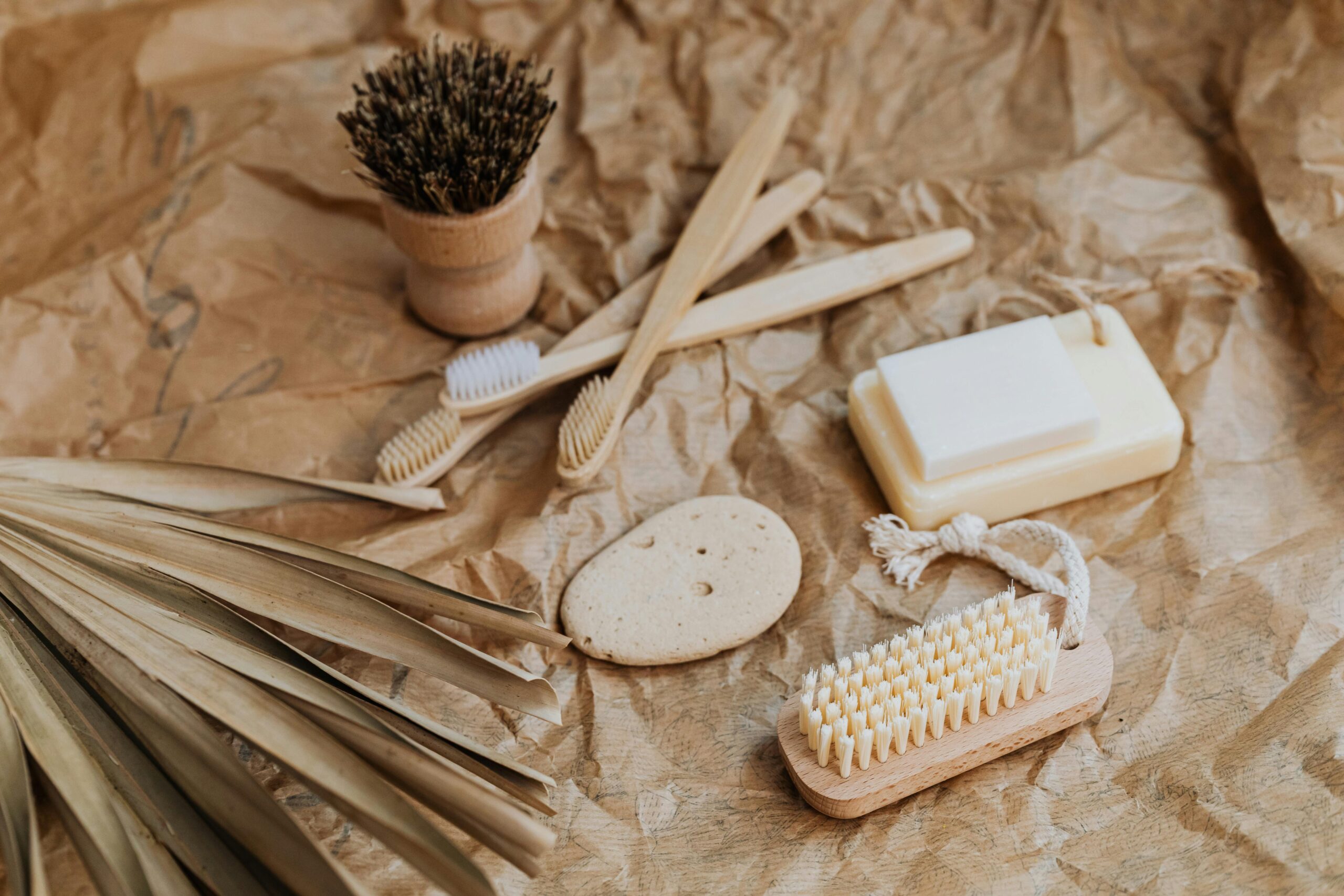
Bulk & Custom Orders
Bulk packs for cafés, hotels, clinics, or corporate gifting. Custom branding and packaging options available for events and businesses.

Recycling & Take-Back Program
Send back worn handles through our program — we compost or upcycle them and keep plastic out of landfills.





